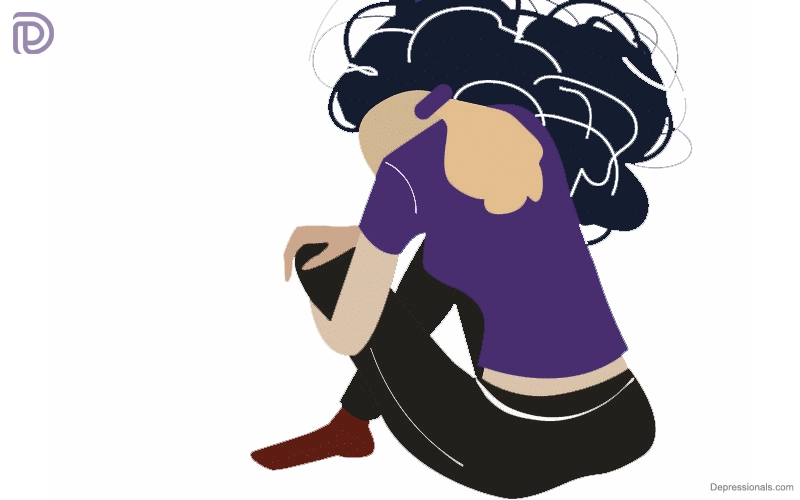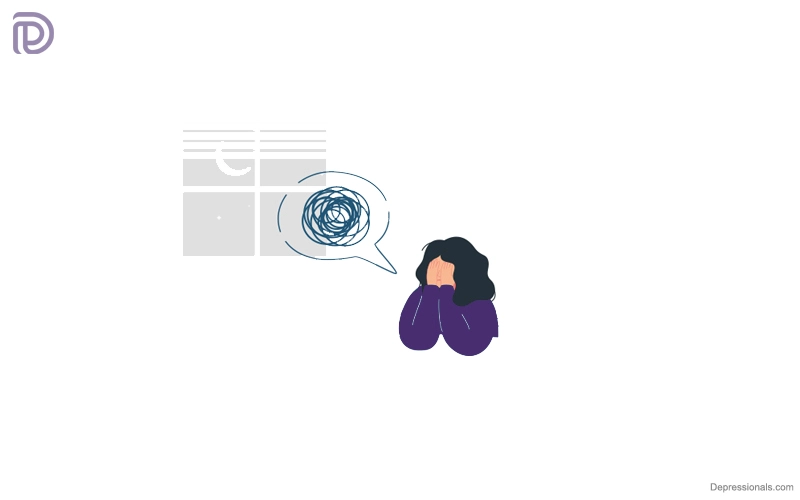Dissociative amnesia is a type of amnesia in which you don’t remember essential details from your life, such as your name, family and friends and personal history. It can arise as a result of severe trauma or stress.
Continue reading to learn more about this condition, its causes and treatment options.
Types of dissociative amnesia
Dissociative amnesia (DA) is indeed a dissociative disorder. Dissociative disorders are a type of mental disorder that affects people in different ways. They are identified by a lack of connection between your memories, identity and surroundings.
If you are suffering from dissociative disorder, you may feel cut off from the rest of the world. Dissociation can continue for hours, days, or even weeks or months in certain situations.
There are several types of DA:
- Localized: This occurs when you are unable to recall events from a certain time period.
- Generalized: This is a full loss of memory, including identity and personal history. It’s quite uncommon.
- Fugue: In a dissociative fugue, you may forget some or all of your personal details and roam or travel to areas you wouldn’t normally go. In certain circumstances, you may even adopt a whole new identity.
Read: Depersonalization Disorder
Symptoms of dissociative amnesia
The following are characteristics of DA:
Memory loss
Memory loss can be widespread or specific to a certain period of time (localized). If you have DA, you may forget details about your own history, identity or events, but you will remember general facts.
An individual with amnesia, such as that linked with dementia, has trouble creating new memories. Apart from amnesia, persons with DA seem to be able to form new memories and maintain cognitive functioning.
People with DA typically appear unconcerned about their amnesia, although other types of memory loss can be distressing. Furthermore, as DA fades away, most people regain their memories.
Association with a trauma
Dissociative disorders, such as DA, are frequently connected to a traumatic or stressful incident in one’s life. Experiencing abuse or participating in military conflict are two examples.
People with DA may have trouble recalling details from this traumatic era. A person who has been abused, for example, maybe unable to recollect specifics or information from the time of the abuse.
Duration
Many DA cases are brief, lasting only a few hours or days. They may persist longer in some situations.
It can’t be explained by anything else.
Memory loss is frequently caused by another medical issue. however, memory loss in persons with DA cannot be explained by other factors such as brain damage, stroke, or drug or alcohol abuse.
Read: Short-Term Memory Loss
Causes of dissociative amnesia
DA has been related to traumatic or very stressful experiences. Examples include the following:
- Being in the midst of a conflict
- Having been affected by physical, mental or sexual abuse
- Having been a victim of a crime or seen one being committed
- Experiencing a natural disaster, such as a storm or earthquake
- Experiencing extreme stress because of relationships, economics or your work
There are numerous theories as to why these occurrences may result in DA. A complicated mix of them is thought to have a role in the condition’s development:
- By dissociating itself from a traumatic experience, the brain seeks to cope with or shield you from painful memories.
- Stress from traumatic experiences impairs your brain’s capacity to recall personal memories from that period.
- According to certain research, genetics may have a role in the onset of dissociative episodes.
Who’s at risk for developing DA?
Certain people are more likely to develop DA than others. Adults who were abused as children and people who may have had a traumatic experience at any time in their lives belong to these groups.
Read: Mixed Dementia
Can other conditions occur with DA?
There are a number of additional disorders that can occur in addition to DA. These are referred to as comorbid conditions, and they can include the following:
- Post-traumatic stress disorder (PTSD)
- Depression
- Anxiety disorders
- Personality disorders
- Sleep disorders
- Alcoholism or substance abuse disorder
How dissociative amnesia is diagnosed
A doctor will first collect a detailed medical history and conduct a physical examination to diagnose DA. This can assist them in ruling out other possible causes of amnesia, such as:
- Illnesses
- Brain injury
- Effects of drugs and alcohol
If a medical cause of your amnesia cannot be ruled out, you will be referred to a mental health professional, such as a psychologist or psychiatrist. This is a person who has been trained to recognize and diagnose a variety of mental disorders.
A psychological examination will be conducted to gather information and gain a better understanding of your life events along with your level of functioning. Your symptoms, as well as your actions, ideas, and feelings, will be discussed.
Furthermore, other techniques may be applied to help in the diagnosis. The American Psychiatric Association’s Diagnostic and Statistical Manual of Mental Disorders (DSM-5) is one such example.
Dissociative amnesia treatment
The following are some of the goals of DA treatment:
- Symptoms of forgetfulness are alleviated, allowing you to reconnect with your surroundings and environment.
- Supporting you in learning to cope with stressful or painful situations in a healthy manner
- Acquiring new life or coping skills to improve your level of functioning
Therapy and medicines are used to treat DA:
- Therapy: Cognitive behavioral therapy, talk therapy (psychotherapy) and hypnosis are all examples of this.
- Medications: There are no medicines available to treat DA specifically. Although, medications can be used to treat illnesses that can develop along with DA, such as anxiety disorders and depression.
Read: Dissociative Identity Disorder
What’s the outlook for dissociative amnesia?
DA is usually short-lived, although it can continue for weeks or even months in certain situations. It’s also possible that you’ll experience several DA episodes during your life.
Overall, DA has a bright future. Most people’s lost memories come back over time, sometimes without therapy. Memory restoration can happen quickly or gradually over time.
The prognosis for DA varies based on the kind and severity of forgetfulness as well as your personal circumstances. Seeking immediate treatment of DA and the situations that can take place along with it can also effectively boost outlook.
Key findings
When you forget personal or private information, this is referred to as DA. It happens when there isn’t another medical issue that might induce forgetfulness. It usually lasts for a few hours or days, although it can occasionally last longer.
Abuse, military warfare or natural catastrophes are all examples of stressful or traumatic events that might lead to DA. People who were abused as children or who have been through terrible circumstances in their lives are more likely to acquire the disorder.
Even if no therapy is given, most persons with DA ultimately regain their memories. Getting therapy as soon as possible, on the other hand, might help you feel better.





I’m not that much of a internet reader to be honest but your sites really nice, keep it up! I’ll go ahead and bookmark your website to come back later on. Cheers
Your post contains a lot of useful information.
I just couldn’t depart your website before suggesting that I actually enjoyed the standard info a person provide for your visitors? Is gonna be back often to check up on new posts
Cool website! My name’s Eric, and I just found your site – depressionals.com – while surfing the net. You showed up at the top of the search results, so I checked you out. Looks like what you’re doing is pretty cool.
Hey, this is Eric and I ran across depressionals.com a few minutes ago. Looks great…